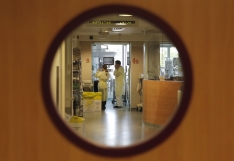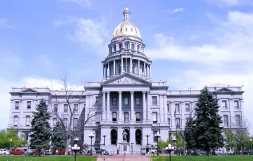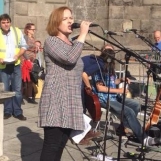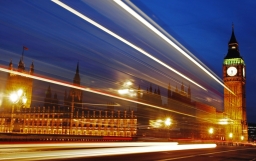An overwhelming majority of MPs voted to clarify the law banning gender-selective abortions in Parliament today.
Peers backed a bill tabled by Conservative MP Fiona Bruce by 181 to 1.
A cross-party group of 11 female MPs argued that it is currently unclear whether the practice of performing abortions on the grounds of gender alone is legal in the UK, despite repeated insistence from Ministers that it is forbidden under law.
There are concerns that doctors could agree to gender-based abortions due to this ambiguity.
"The law needs to be clarified, and women who are under pressure to terminate on the grounds of sex needs to be offered alternatives," Bruce said ahead of the vote.
"This isn't seeking to change the law, that's the important thing, we are only seeking to clarify it and also to eradicate any confusion that there might be about this issue," she added, branding abortion on the grounds of gender "the ultimate form of discrimination," along with forced marriage and Female Genital Mutilation.
Bruce, a pro-life advocate, previously said that she was expecting the Bill to be supported by a "huge number" of MPs, including those "diametrically opposed to me on many issues relating to women".
"On this one they are standing full-square with me," she said.
The Prime Minister in March labelled gender-based abortion an "appalling practice" but said that the Government has "made clear" it is illegal. Several medical bodies, however, have supported Bruce's claim that the law needs greater definition.
Tony Calland, chairman of the British Medical Association's ethics committee, warned earlier this year that government guidelines fail to "reflect the complexities and full legal situation regarding abortion and gender".
Exceptional circumstances could lead some doctors to conclude that "the effects of having a child of a particular gender are so severe to the physical or mental health of the pregnant woman as to provide legal and ethical justification for an abortion", he said.
The Crown Prosecution Service has also criticised guidelines for not giving doctors enough information on how they should assess risk to pregnant women.
Domenica Roberts, Chair of the Pro-Life Alliance, told Christian Today that it's difficult to know how prevalent the practice is in the UK, but that it is largely a "feminist issue". She said that it is almost exclusively female foetuses which are terminated due to cultural values held by certain communities.
"We as the Pro-Life Alliance are opposed to the abortion of any baby on any grounds at all," Roberts said.
"[Gender-selective abortion] is certainly not technically within the law, but one of our objections is that the law as it's drafted is not being followed out. The way in which the law is being carried out is far, far worse that what is written down...people do need their attention drawn to it."
Roberts argued that abortion on the grounds of gender is "no more abhorrent than aborting a baby for another reason," including the child being disabled or simply unwanted.
"There is always a better solution, without exception, than taking an innocent human life. Any abortion is abhorrent, and is a very, very sad thing for the mother as well as the baby," she said.


















